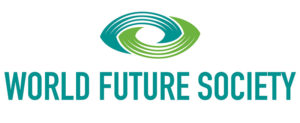By Rose O. Sherman, EdD, RN, NEA-BC, FAAN
Last week, I attend the World Futurist Society conference in Washington DC. I have belonged to this group for more than a decade and always find these meetings to very stimulating. This conference was no exception. The quality of the presentations were outstanding and transdisciplinary. Here are 20 of my takeaways from the conference:
- The future is a place not a time.
- The decisions we make today directly impact the future.
- Futures thinking and foresight is the new key leadership competency.
- Strategic foresight should be viewed as an “immune system” for the organization.
- Become comfortable being uncomfortable.
- There is danger in being “data driven” because by its very nature – it is historical. One must also look for qualitative data.
- People want certainty and less complexity in their lives but this is not the reality of the world we live in and will not change.
- A big challenge for leaders is to help their staff who crave simplicity in a complex world.
- Always be willing to challenge old ways of thinking and to constantly test your own assumptions about situations.
- Be very aware of the “filters” that you have in your mind that temper your ability to evaluate change.
- Sometimes when you have a great deal of experience in an area – you are also a victim of educated incapacity because of your investment in what you know.
- Today’s new mantra should be learn —- unlearn —– relearn.
- Scanning your environment is important — scan sources like twitter, Flipboard, all sources of traditional media. Talk with teenagers and when you travel, see yourself as an ethnographer.
- Futurists talk about the STEEP framework to outline key drivers of change. This includes social trends, technological trends, economic drivers, environmental development and political trends.
- In your own environment, consider scenarios that could happen in the future from emerging patterns that you observe from your environmental scanning.
- Futurists believe that in scenario development – you need to consider at least three different types of scenarios — “an abundant world ” or the best possible positive change, “the market world” or an extrapolation of the future from what exists in the present and a “fortress world” or landscape of scarcity thinking and isolationism.
- The most important word for the futurist is “why” not “what”.
- We have “Black Swans” or totally unexpected events that are transformative BUT we also have “Black Elephants” or events that we knew were coming but chose to ignore.
- When we make strategic plans – we need to understand from the outset that they will change.
- In today’s world, the currency of leadership is trust.
© emergingrnleader.com 2016



 LinkedIn
LinkedIn Instagram
Instagram